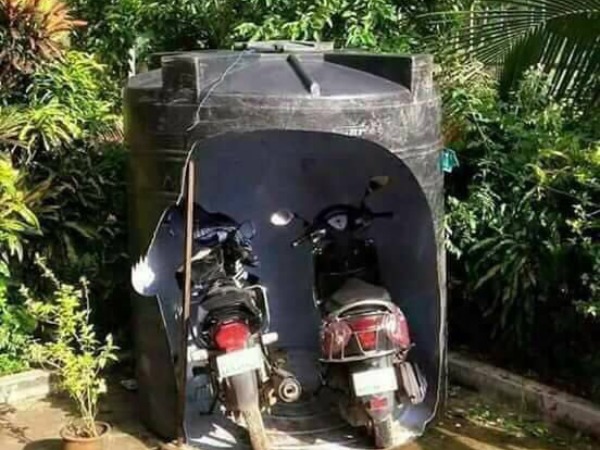Stop celebrating Jugaad!
A few months ago, I learned the hard way that water is HEAVY. For those who have never gone backpacking before, water is likely to be one of the heaviest weights you'll carry on the trail, and yet it's not something you can skimp on. As such, solutions that allow you to carry less of it but readily filter water from available sources on the trail instead are vital for backpackers. I went to REI's website to see what solutions were available out there. I was blown away by the sheer diversity of options available.
 |
| Some of the Portable Water filters on REI's website |
There were literally pages upon pages of solutions of all types, across price ranges, weights and capabilities, all of them trying to solve one, simple problem-How do you filter water on-the-go.
This is not a one-off experience either. In my last few years in the US, I've seen similar abundance of well designed options available for solving all sorts of tiny problems, from kitchen tools, to machine shop jigs and fixtures , heck, 3M even makes a few dozen types of sticky notes! Who knew there were so many ways to sell paper with glue!
It gets better. When you dig into the companies that make a lot of these products, you'd be surprised how many of them are either made by small mom-and-pop operations or started as tiny independent operations that grew big. The origin story for a lot them goes something like this-- Ms. Stacy once encountered problem X. The options in the market weren't exactly what she was looking for, so she put together a prototype of product Y for herself. When her friends saw her use it, they asked her to make one for them too and offered to pay for it. Stacey realized there might be a market for this. So Stacey went into production and now the product is a sustainable business.
I've lost count how many such stories I've read in the last few years, about western companies that have taken this path. And yet, when I try to think about similar product companies coming out of India, I often come up short. There are a lot of reasons why you don't see as many Prototype-to-Production-to-Consumer-brand success stories in India as you do in the US. Disposable income, ecosystem, infrastructure all play a role. But I'd argue at least a part of it is our romanticization, nay valorization, of Jugaad.
For the uninitiated, 'Jugaad' is the colloquial Indian term for the spirit of coming up with frugal and inventive solutions to life's problems. Often marked by duct-tape solutions, it's an oft-celebrated matter of national pride, so much so that even people who ought to know better are often seen celebrating the spirit. I'm a fan of clever hacks as much as anyone else, and there is value in low fidelity prototyping of ideas, but I think we've taken this national pride a bit too far. Far from treating it as an intermediate step to a better solution, we've come to see the Jugaadu solution as a logical end point.
I think the Jugaad mentality harms us on both sides of the equation-both as Inventors and as buyers.
It's not that we don't have inventors that come up with clever solutions. We've all read stories like that of the girl who invented the pedal powered washing machine. You see such stories in news, on facebook, through WhatsApp videos. And yet, most of these only ever exist as one-off prototypes. So many of our Inventors are content with just fixing the problem for themselves that they never go down the path of maybe productizing their invention, even though every person around them might be facing the exact same problem.
On the flip side, as would-be buyers, we take so much pride in the half-solutions we invent that even for individuals that could afford to do it, paying for a professional solution that actually fixes our problem well is often the solution of last resort. We are reluctant buyers.

Comments
Post a Comment